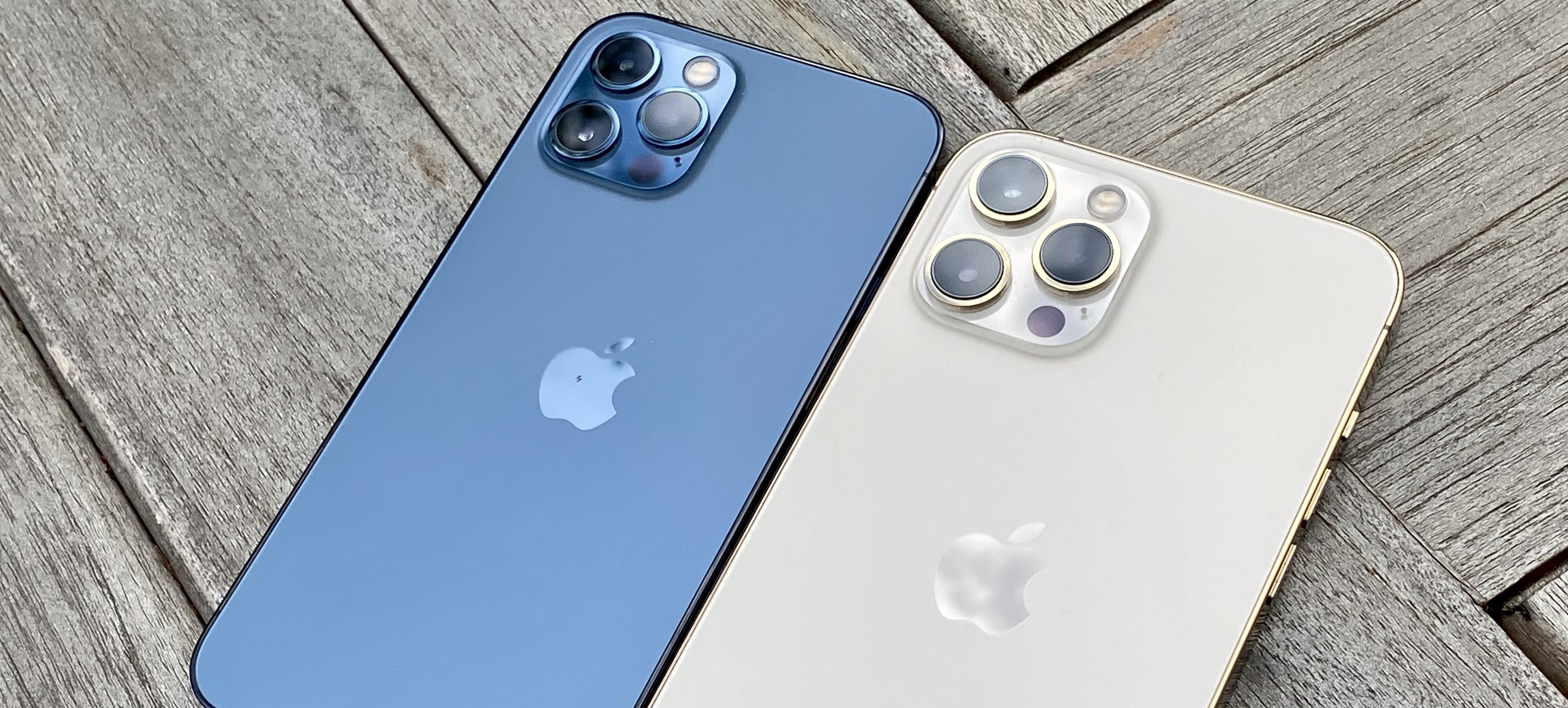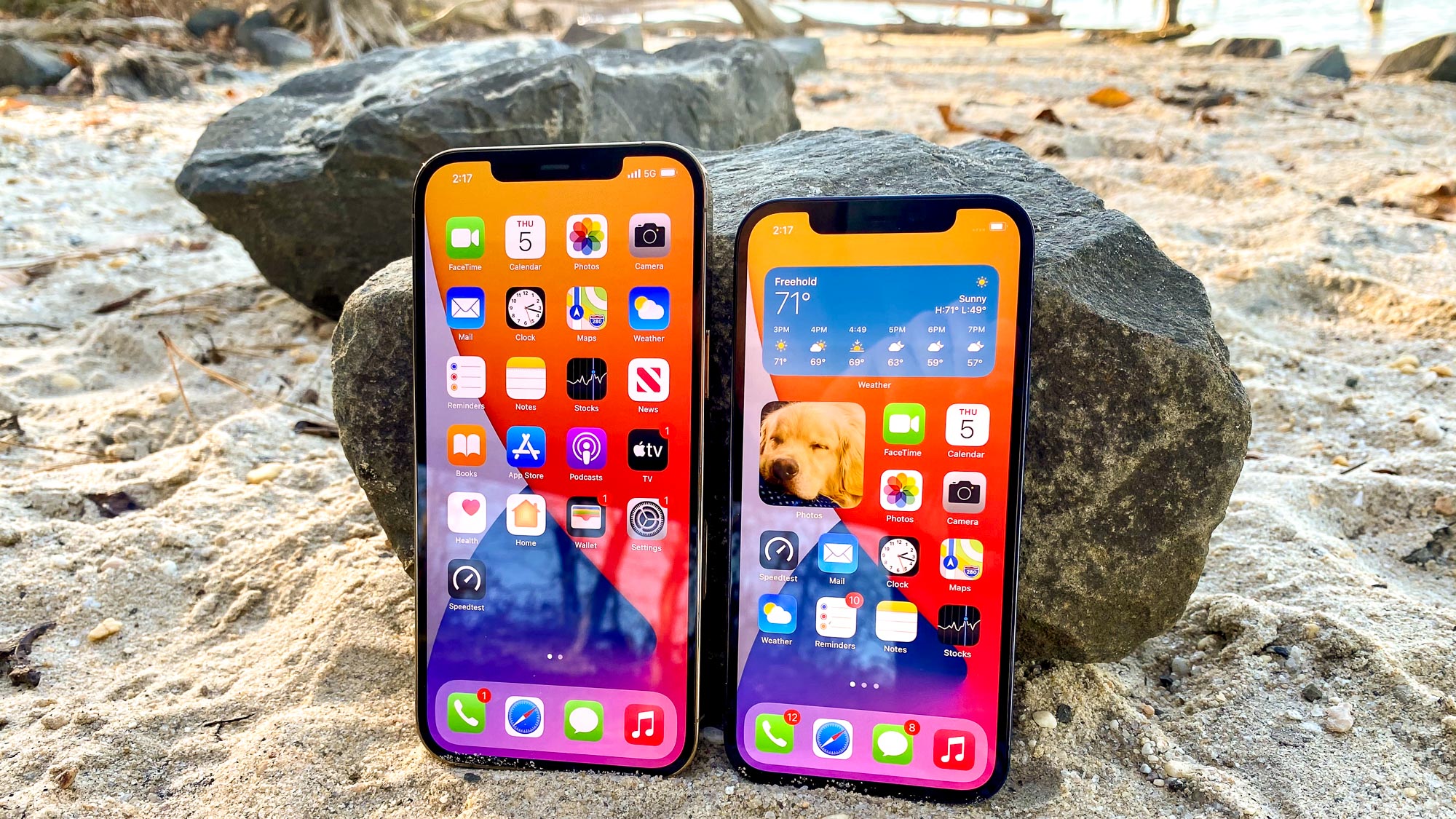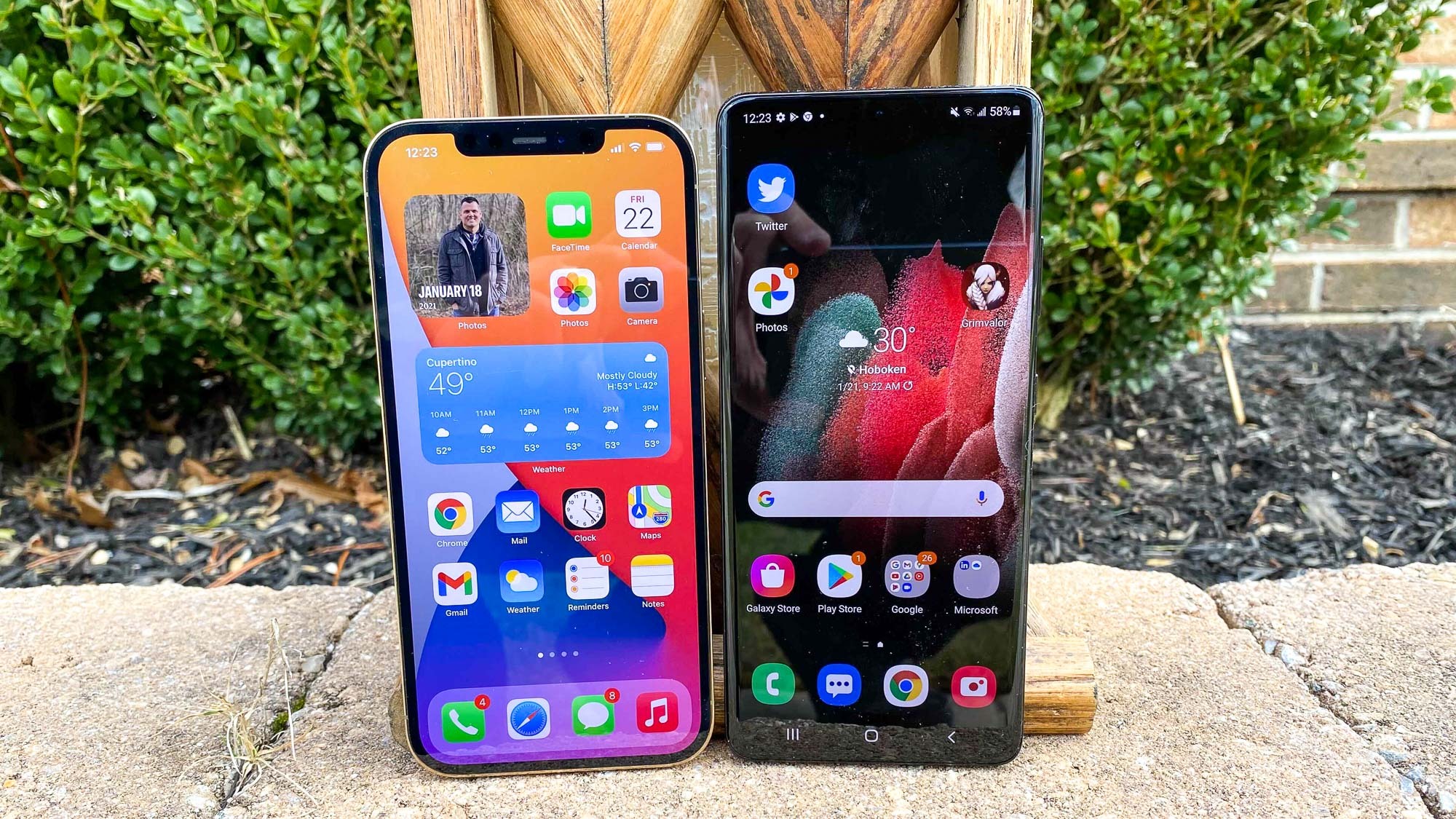Apple's record iPhone 12 sales reveal why it dominates the smartphone world
Apple sold a record number of phones during the holidays — clearly the company knows what it's doing

Here at Tom’s Guide our expert editors are committed to bringing you the best news, reviews and guides to help you stay informed and ahead of the curve!
You are now subscribed
Your newsletter sign-up was successful
Want to add more newsletters?

Daily (Mon-Sun)
Tom's Guide Daily
Sign up to get the latest updates on all of your favorite content! From cutting-edge tech news and the hottest streaming buzz to unbeatable deals on the best products and in-depth reviews, we’ve got you covered.

Weekly on Thursday
Tom's AI Guide
Be AI savvy with your weekly newsletter summing up all the biggest AI news you need to know. Plus, analysis from our AI editor and tips on how to use the latest AI tools!

Weekly on Friday
Tom's iGuide
Unlock the vast world of Apple news straight to your inbox. With coverage on everything from exciting product launches to essential software updates, this is your go-to source for the latest updates on all the best Apple content.

Weekly on Monday
Tom's Streaming Guide
Our weekly newsletter is expertly crafted to immerse you in the world of streaming. Stay updated on the latest releases and our top recommendations across your favorite streaming platforms.
Join the club
Get full access to premium articles, exclusive features and a growing list of member rewards.
It seems like getting a late start to iPhone 12 sales didn't hurt Apple during the holiday season. Announcing its earnings for the December 2020 quarter Wednesday (Jan. 27), Apple reported record sales of $111.4 billion, a 21% increase over the previous year and well ahead of Wall Street expectations.
All of the products in Apple's lineup contributed to that performance — the company reported double-digit growth in all its segments. But the real standout was Apple's phone sales, fueled by the release of four new iPhone 12 models during the quarter.
- Galaxy S21 Ultra vs. iPhone 12 Pro Max: Which flagship phone wins?
- The best iPhones right now
- Plus: iPhone 13 leak reveals Wi-Fi 6E upgrade for killer speed
For the three months ended Dec. 26, Apple took in more iPhone sales than at any point in its history — a little less than $65.6 billion. That’s a 17% jump from what Apple did in the last three months of 2019. Back then, Apple needed strong sales from Apple Watches, AirPods and services to help it enjoy a very merry Christmas.
"Certainly, iPhone was one of the major factors why we exceeded our own internal expectations at the beginning of the quarter," Apple chief financial officer Luca Maestri told Wall Street analysts when announcing Apple's quarterly numbers.
iPhone 12 sales: More than just 5G
Apple's big quarter came after the coronavirus pandemic had hampered the company's ability to even get the iPhone out the door. Normally, the company rolls out its new iPhones starting in September. But production delays prevented Apple from unveiling the iPhone 12 until October. Even then, it launched the new phones in a staggered release — first the iPhone 12 and iPhone 12 Pro shipped, followed by the iPhone 12 mini and iPhone 12 Pro Max.
Some of Apple's success can be attributed to pent-up demand, particularly for a 5G iPhone. All four new phones were the first Apple devices to support 5G, working with a variety of 5G bands. Consider China, a country where there's a lot of demand for 5G phones. Apple's sales rose 56% during the just-completed quarter.
But there's a larger message to take away from Apple's strong iPhone 12 sales, one that may furrow brows at rival phone makers looking to chip away at its business. Apple seems to have figured out how to develop and market phones that address what people are looking for.
Get instant access to breaking news, the hottest reviews, great deals and helpful tips.
How Apple develops iPhones
We ask ourselves if this is a product that we would want to use ourselves or a service that we would want to use ourselves. And that's a pretty high bar.
— Tim Cook
That seems obvious, I'll admit. But you'd have to concede that Apple seems to stick to that philosophy better than a lot of other phone makers. Rivals seem to tack features onto its devices just to show there's something new.
"We ask ourselves if this is a product that we would want to use ourselves or a service that we would want to use ourselves," CEO Tim Cook said during a call with analysts to discuss Apple's quarterly performance. "And that’s a pretty high bar."
Cook said that in response to an analyst question about how Apple evaluates new businesses to jump into. But you don't have to strain too hard to see how it applies to the iPhone and the features that Apple has added with the iPhone 12, such as camera refinements, improved durability and super-fast performance. Apple knows that those are the kinds of things its customers want because it wants it too.

You also can't overlook Apple's decision to release four different models of the iPhone 12. It allowed the company to offer new phones at a wide range of prices. The iPhone 12 mini started at $699, with prices scaling up to $1,099 for the iPhone 12 Pro Max. Somewhere in that $400 spread, there was likely a price shoppers could live with. (And if not, well, that's why the $599 iPhone 11, $499 iPhone XR and $399 iPhone SE are part of the lineup, too.)
Phone makers ultimately come to its own decisions, but you can't convince me that Apple's iPhone 12 pricing hasn't had an influence on some of its rivals. It is probably not a coincidence that the recent Galaxy S21 lineup is $200 less than what it was charging a year prior. Although, the reception for the Galaxy S20 probably played a big part in that, too.
A different iPhone for different needs
It's not just the prices on each iPhone 12 model, though — it's that each one serves a distinct purpose. The iPhone 12 Pro models, for example, have different cameras and use different materials than the less expensive iPhone 12 and iPhone 12 mini. The iPhone 12 Pro Max, in particular, not only appeals to people who like the biggest screen possible, but also anyone who puts a premium on the mobile photography thanks to its larger main sensor.
As for the iPhone 12, it's targeted as the phone to appeal to a wider audience, while the mini is establishing itself as a device for fans of compact phones.
"We have a fantastic product lineup and we know that, and it’s been fantastic to see the customer response for the four new models, particularly the pro models," Maestri said.
It's an approach other phone makers who roll out multiple models would do well to copy. OnePlus, for example, has done a pretty good job differentiating its main flagships from its new budget-minded Nord lineup. Granted, with different OnePlus Nords available, that segment is getting cluttered.

In contrast, this is something Samsung seems to struggle with. While the Galaxy S21 Ultra has a distinct appeal, if only because Samsung managed to pack every feature imaginable into it, there doesn't seem to be much difference between the Galaxy S21 and S21 Plus. And if you can tell me how the Galaxy S lineup differs from the Galaxy Note, especially now that both have S Pen support, you're a smarter cookie than I.
Even more worrying for Apple's competitors is that the company seems to be applying its same know-how with phones to its other business. Take the wearables segment — it not only saw record growth during the holidays, but its audio, watch, and smart speaker sub-segments all tallied record revenues, too. Services turned in an all-time record in revenue, while the Mac segment, buoyed by the arrival of Apple's own M1 chip, saw its best sales for the December quarter.
In short, while Apple may stumble every now and again, I wouldn't expect the company's dominance in the smartphone world to ease up any time soon. Apple has showed once again that it's got a pretty good idea of what it's doing.
Philip Michaels is a Managing Editor at Tom's Guide. He's been covering personal technology since 1999 and was in the building when Steve Jobs showed off the iPhone for the first time. He's been evaluating smartphones since that first iPhone debuted in 2007, and he's been following phone carriers and smartphone plans since 2015. He has strong opinions about Apple, the Oakland Athletics, old movies and proper butchery techniques. Follow him at @PhilipMichaels.
 Club Benefits
Club Benefits











